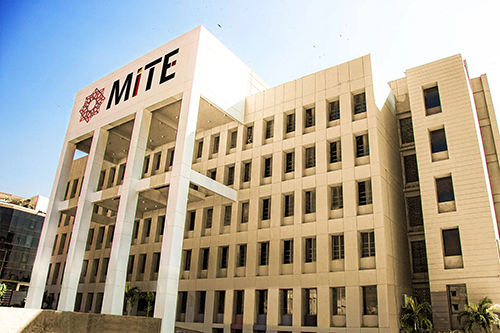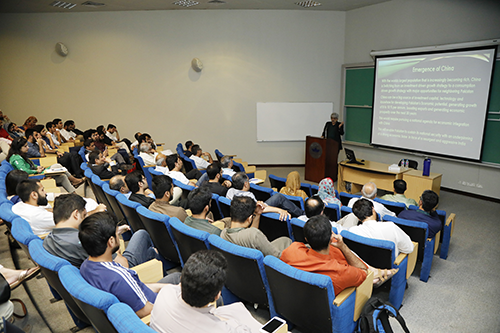The eighteenth summer for most young men and women is filled with hopes, dreams and anxiety. After 12 years of schooling, they are now ready for university. Those who score well in high school enjoy smooth sailing to the best available higher education institutions. Unfortunately, that group represents less than 10 per cent of peer high school graduates. What happens to the remaining 90 per cent is rather scary.
The insufficiency of state welfare services has resulted in substantial private health care and education. Budgetary changes required to handle Pakistan’s fiscal restrictions have historically resulted in cutbacks to social services. But the private universities in Pakistan are also facing a headwind. Enrollment in colleges and universities across the globe worsened in spring 2022, sparking fears of a fundamental change in perceptions regarding the value of a college degree.
In this issue of Narratives Magazine, Dr Huma Baqai discusses Pakistan’s education system and how to improve it. Being an educationist, Dr Huma Baqai has dedicated over two decades of her life to teaching and mentoring students in one of the best business institutes in Karachi. Dr Baqai is a scholar, reviewer, author, and co-editor of two books, apart from contributing to various magazines and newspapers. Dr Baqai has also authored 29 research papers.

Narratives: LUMS and IBA serve about 1% of students. What about the rest of the 99%? How can they get a similar standard of education, notably if they haven’t fared well in their high school?
HB: If you have the desire to learn, the options are many. Institutes that are not IBA or LUMS produce some fantastic graduates. Many students do exceptionally well, but that is not what the institute has done for them but what they have been able to do for themselves.
That is where a paradigm shift needs to come. These reputed institutes (IBA, LUMS) work on each student, entitling them with elements to be competitive in the market. That’s how the learning culture or environment is. Providing them with cooperative exposure, extracurricular activities, and interface with the industry is taught to these students.
These universities also work on an advantage. IBA has a rejection rate higher than that of an IVY League university. We get 12,000 applications and accept 900 students. This is a sad commentary on how difficult it is for students to get into an institute.
More private institutions should come in. Public sector education is not sustainable anymore, so more private initiatives should go in now and inculcate in students all that is required in competitive markets.
Narratives: You have left IBA. What’s next?
I am now affiliated with a new institute called MITE Millennium Institute of Technology and Entrepreneurship, where the ethos is very different. This university’s entire thrust is to create a mindset where the student is groomed into becoming a job-giver and not a job-seeker. So the construct of entrepreneurship is spread over the three verticals in a fashion that when a student graduates from us in four years, he is groomed into somebody who has the confidence and has had the exposure to become an entrepreneur and then provide jobs. That is the kind of service society needs.
Having said that, many other options exist; for example, the regulators need to do more than look into the infrastructure and the curricula of universities. They need to focus on quality rather than quantity. The role of HEC should also change. We need to look at them as facilitators, mentors, and a regulatory body that does some hand-holding rather than shutting down one institute after another, which is required, but there should be more compassion.

Narratives: What would a student be like when she graduates from MITE four years from now?
HB: One, she would be a very confident individual, a risk-taker who knows that failure is not the end of the world. It is a new beginning because that is what entrepreneurship is all about. She will be well-versed in technology because that is most important for tomorrow. We significantly focus on ensuring that all our verticals have that component. And last but not least, we want to introduce the element of personal effectiveness. We want to focus on not just classroom learning but also personal grooming – 360 learning. The classroom makes up only 20% of the education in a university, and the rest happens outside.
So down the line, this individual will be very networked, very confident and become our ambassador when she steps out into the market.
What is your opinion on ranking firms and their methodologies?
HB: Most of them are commercial entities, others are manipulated, and yet others have personnel who are cultivated by very smart institutions who get the kind of rankings they are looking for, and that is a major reason why they have lost credibility. There was a year when HEC did not give out rankings because the year previous to that, there was a scandal. So these are the issues that need to be addressed.
Eventually, you need rankings. Competition is good, but you have to weigh credibility. You have to be unbiased and have consistency and quality standards.



